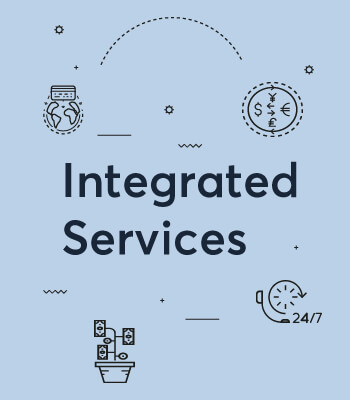Integrated Services
Avenues Financial provides solutions to fit your needs, whether audit preparation, internal controls or system conversion. Our team has the expertise and experience to achieve your goals.
Anticipate Risk Interdependencies that can Impact Your Business Growth
Avenues Financial Internal Audit, Compliance and Risk Management Solutions practice helps you build effective internal audit and risk management functions and anticipate the risks and risk interdependencies that can threaten your business and impact your growth. We understand the interconnections between the ‘lines of defense’, and help you to turn each function—Internal Audit, Risk Management & Compliance and Controls Testing and Monitoring Solutions—into a strategic asset to drive business performance. When you master risk, you build confidence and create a powerful business advantage.
5 Elements of Effective Internal Controls:
Control Environment
The foundation of internal controls is the tone of your business at management level. Integrity and ethical values, management philosophy and operating style, and assignment of authority and responsibility fall under the control environment umbrella.
Risk Assessment
Risk assessment is the evaluation of your business flow and exposure to risk. A number of risks are present for all organizations on a daily basis. It’s essential to identify and analyze these risks in order to prevent an adverse event from occurring. You should perform risk assessments continuously.
Control Activities
Control activities are the actions established through policies and procedures that help ensure that management’s directives to mitigate risks to the achievement of objectives are carried out. Control activities are performed at all levels of the entity, at various stages within business processes, and over the technology environment.
Information & Communication
This is the exchange of information within your business. Clear lines of communication shouldn’t just flow from management to employees, but from employees to management so that each member of the team can successfully carry out their responsibilities.
Monitoring
The foundation of internal controls is the tone of your business at management level. Integrity and ethical values, management philosophy and operating style, and assignment of authority and responsibility fall under the control environment umbrella.

Make Your Annual Audit Less Stressful With Avenues Financial Audit Preparedness
Preparation and planning can help ensure you can achieve a smooth and successful audit. Preparing for an audit is crucial in ensuring that the company receives an unqualified or clean opinion. The opinions essentially mean that the auditor stamps its approval that the financial records are not materially misstated.
Auditing is important to maintaining trust and efficiency within the financial markets. Without auditing, companies can misstate their financial records and performance and make themselves appear more profitable or successful than they actually are.
Financial statements are prepared in accordance with relevant accounting standards and are meant to provide information for decision-makers such as investors, creditors, and other stakeholders. If the information cannot be trusted, it will undermine the stakeholders’ willingness to engage with companies.
6 Steps to Prepare for an Audit
Planning for the audit
Planning is crucial, and additional time needs to be taken to adequately prepare for an audit. It may be a few months or a few weeks, depending on the complexity of financial records.Throughout the fiscal year, records should be kept up to date, which can reduce the pressure near the time of the audit.
Keeping up with accounting standards
Accounting standards and legal and regulatory requirements are updated every year. Therefore, it is important to familiarize the finance team with new accounting developments instituted by regulatory bodies. By staying up-to-date, it reduces the time needed to track data and make changes to comply with regulations.
Assess organizational changes
If the company’s been audited before, the changes in its financial situation from the last audit should be taken into consideration. Material changes may affect the auditing process, such as new projects being invested in or government support and grants given.
Learn from the past
Review previous years’ audit notes and recommendations. Improve by adapting and ensuring past mistakes are not repeated.
Develop a timeline & assign responsibilities
Review the list of requirements from the auditors and assign each item to a capable and responsible person, with a due date. Plan the completion of schedules with the auditors to maximize efficiency.
Organize Data
All working papers and schedules should be organized and prepared to be submitted to the auditors.
Our Clients






Take ACCOUNTING Off of Your To-Do List Today!
Let our team of experts handle the accounting and financial reporting so you can focus on what you love to do – growing your business.



